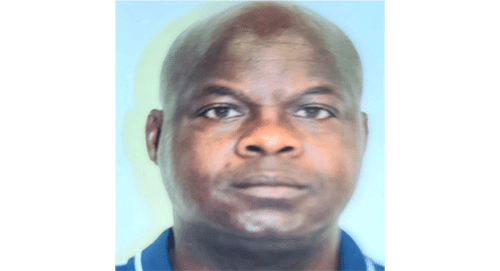Lucas Tshuuya
Identification is one of the means of identifying something and/or individualise it.
To differentiate one thing from another can be achieved by employing means of identification applicable either by name, identification mark, trademark, fingerprints, and scientific means such as Deoxyribonucleic acid
(DNA) and forensic odontology in some instances like after death.
According to Births, Marriages and Deaths Registration Act 81 of 1963, once a child is born or stillborn, a notice of birth occurrence should be given to the registrar within a period of 14 days by parents or occupier of a building where the birth occurred.
When registering a birth, all what is required is occurrence of birth record from the maternity ward of a hospital where the birth occurred or if the child was born in the rural area, a letter from the traditional authority of the area where the child was born and in some instances church records from the congregation where the child’s parents congregate.
Interestingly, no further requirements necessary to positively identify the child and/or link the child to the birth certificate issued by the secretary like obtaining blood sample for DNA test.
The Namibian constitution under Article 15 provides that a child is entitled to a name from birth by assigning a name for identification purposes.
Once the child’s birth is registered, the child grows up using a birth certificate as a means of identification until attaining the age of 16 years pursuance to Identification Act 21 of 1996 to apply for identity document (ID) and only than fingerprints are taken to link the person to the ID and such fingerprint images would be kept in the national population register for life.
Once the ID is produced and ready for collection, the person can collect the ID and no fingerprints are to be taken again to match them with the ID, the person is only required to sign off the ID on the ID collection register.
Here it is where chances exist that anyone who happened to get hold of proof of a registration card (temporary ID) of another person and present it to the ministry of home affairs as his/her would be able to collect another’s ID and start using it like by applying for admission at school, applying for employment, applying for driving licences etc.
There are records of people arrested by police while committing crimes, tried in court, and sentenced to imprisonment while using other people’s IDs and would be identified as such whereas in real sense such IDs belong to other people, simply because the means of identification employed by public officials is that of visual screening. This is so because there is no scientific system to positively identify persons.
Valuable assets such as houses, aircraft, firearms, vehicles, and ships are identified by unique serial numbers embossed and/or engraved on them to individualise them so that they are not mixed-up with other similar objects.
In developed countries, a person is positively identified by scientific means of identification even after death.
There have been reports in Namibia of people who made use of other people’s IDs to seek employment, applying for driving licences, applying for admission at schools etc. and succeeded getting various opportunities, because there is no system in place to detect such anomalies.
These incidents normally are detected afterwards when such person already got opportunity to his/her advantage while under another’s ID and when detected it is when you observe public officials running around trying to impute charges of misrepresentation or impersonation against the suspect meanwhile damages have already been caused, and it is difficult to remedy the situation after the
effect.
These anomalies occurred at places of employment such as in the Namibian Defence Force, Namibian Police force, ministry of education (ghost teachers) and previously at CDM now Namdeb to mention, but a few.
The situation becomes insoluble when these individuals resign, retire, or pass away while in services using fake IDs, as administrative officials found it difficult to process individual benefit claims, because to determine who such benefits belong to prove a
nightmare.
The Namibian authority is called upon to consider reviewing and/or amend its Identification Act and introduce a positive means of identification of persons to avoid this conundrum, as it causes risk and economic disorder, because anyone who pick up another’s ID would start using it for any purpose.
*Lucas Tshuuya holds a Police Science degree from NUST, a Bachelor of Law from UNISA and currently a candidate legal practitioner of the High Court of Namibia.



